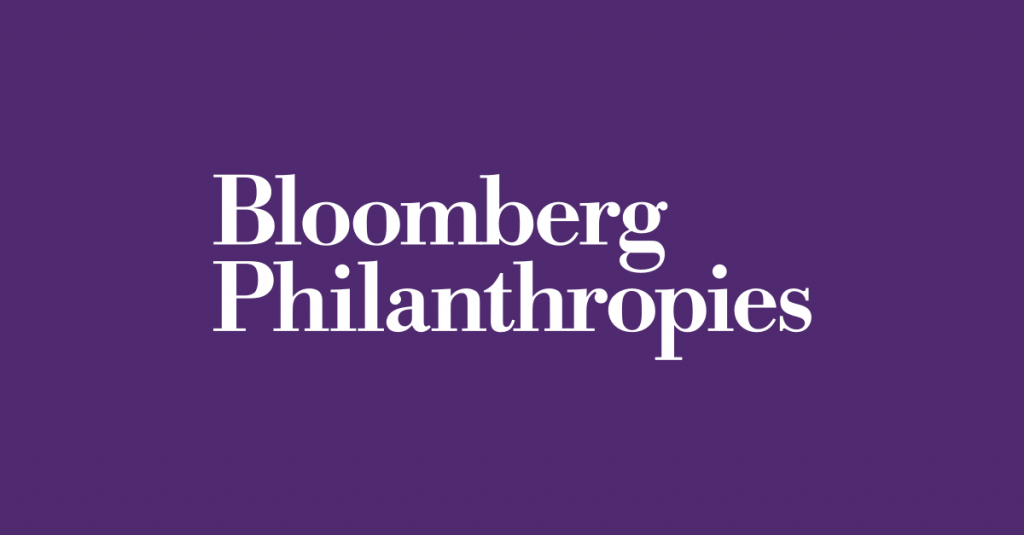Michael R. Bloomberg to Help City Leaders Respond to Coronavirus in the United States

Bloomberg Philanthropies Announces Network of Support for Mayors Responding to the Public Health Crisis – Leveraging Collaborations with the Johns Hopkins Bloomberg School of Public Health and the Bloomberg Harvard City Leadership Initiative
Washington, D.C. – Today, Bloomberg Philanthropies, working with partners at the Johns Hopkins Bloomberg School of Public Health and the Bloomberg Harvard City Leadership Initiative, launched a new program of support to help American mayors respond to the rapidly evolving Coronavirus epidemic.
As the virus continues to spread through communities around the world, with devastating impact on the wellbeing of residents and local economies, it has fallen to mayors to step up to direct the response. Michael R. Bloomberg announced today at the National League of Cities 2020 Congressional City Conference in Washington, D.C. the Coronavirus Local Response Initiative that will provide cities with virtual technical assistance, coaching, and accurate information urgently needed by the local leaders on the frontlines of the public health crisis. Bloomberg Philanthropies will work with partners to identify and document, in real time, the needs and lessons learned from cities like Seattle experiencing the outbreak that can be shared with other cities eager to get ahead of the virus’ spread.
“Mayors are on the front lines of the biggest challenges facing the country, including the Coronavirus crisis,” said Michael R. Bloomberg, founder of Bloomberg LP and Bloomberg Philanthropies, and three-term mayor of New York City. “But right now, there’s an enormous gap between the support the federal government is providing and the support local governments need. This new initiative — an unprecedented collaboration involving experts from Harvard and Johns Hopkins — will help fill the gap, and help local leaders work to prevent the spread of the virus and protect the social and economic well-being of communities.”
Relying on public health experts from the Johns Hopkins Bloomberg School of Public Health as well as additional researchers and clinicians from across Johns Hopkins University, the network will provide mayors with the most up-to-date information on the virus from the Centers for Disease Control and Prevention and help them understand how to act on it quickly, efficiently, and reliably for the benefit of their citizens.
“At the Johns Hopkins Bloomberg School of Public Health, our epidemiologists, virologists, policy experts, and specialists in preparedness are collaborating in efforts across all areas relevant to the coronavirus response. We are pleased to collaborate with the Bloomberg Philanthropies and the Bloomberg Harvard City Leadership Initiative to offer our expertise to help local communities offer evidence-based responses,” said Ellen J. MacKenzie, dean of the Johns Hopkins Bloomberg School of Public Health.
The Bloomberg Harvard City Leadership initiative will tailor its virtual programming for mayors, bringing in experts from Harvard Kennedy School and Harvard Business School, to focus on crisis leadership and crisis communications. Mayors will be able to connect with one another to share best practices and lessons learned from their recent experiences.
“Seattle and state and local governments across the country are on the front lines on this quickly evolving public health emergency. At an unprecedented time, Mike Bloomberg is stepping forward with concrete and practical ways for us learn from the best civic and health experts, share information in real time, and zero in on what works to protect our residents and businesses,” said Seattle Mayor Jenny Durkan. “This effort will help communities across the country pull through this difficult time.”
Interested mayors and city leaders should email coronavirusresponse@bloomberg.org to apply.
Michael Bloomberg is building on his experience as a crisis manager who has prioritized public health throughout his tenure as mayor of New York City and in his global philanthropic efforts. As mayor, he implemented ambitious public health programs, increasing New Yorkers’ life expectancy by three years – 2.2 years longer than the national average over that time span. In 2006, he unveiled a Pandemic Influenza Plan, which included disease monitoring, building laboratory capacity, delivering vaccines and medicines, and preparing hospitals, mental health providers and city communications for a disease outbreak. He led the city through the constant threat of bioterrorism attacks, the swine flu outbreak in 2009, and the West Nile virus in 2012. While Mike was mayor, the city’s syndromic surveillance system monitored 60,000 health events every day, from ER visits to foodborne illnesses to potential terrorist attacks.
As a philanthropist, Mike’s investments in public health total $2.5 billion. In 2016, Mike and Johns Hopkins University launched the Bloomberg American Health Initiative to tackle declining life expectancy in the U.S., in 2017, started the Partnership for Healthy Cities, a global network of cities committed to confronting noncommunicable diseases and injuries, and in 2018 became the WHO Global Ambassador for Noncommunicable Diseases.
Now, by providing cities the tools to understand, respond and manage a dynamic public health crisis, they will be better prepared to play their part in managing the spread of Coronavirus in the United States and protecting their residents.
###
About Bloomberg Philanthropies:
Bloomberg Philanthropies invests in more than 570 cities and over 160 countries around the world to ensure better, longer lives for the greatest number of people. The organization focuses on five key areas for creating lasting change: the Arts, Education, Environment, Government Innovation, and Public Health. Bloomberg Philanthropies encompasses all of Michael R. Bloomberg’s giving, including his foundation and personal philanthropy as well as Bloomberg Associates, a pro bono consultancy that works in cities around the world. In 2019, Bloomberg Philanthropies distributed $3.3 billion. For more information, please visit bloomberg.org or follow us on Facebook, Instagram, YouTube and Twitter.
Contact:
Courtney Greenwald, +1-212-205-0361 / courtney@bloomberg.org